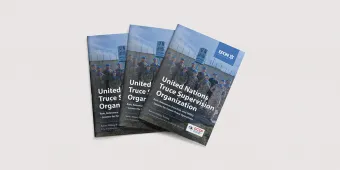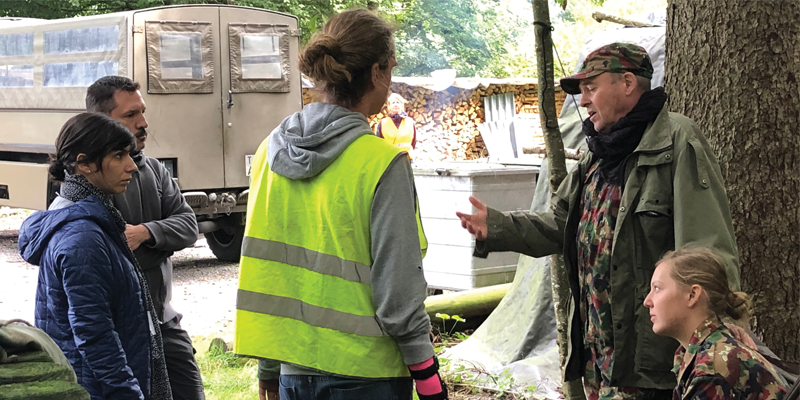United Nations Truce Supervision Organization: Role, Relevance, Function, and Utility – Lessons for Future Peace Operations

United Nations Truce Supervision Organization: Role, Relevance, Function, and Utility – Lessons for Future Peace Operations
In cooperation with the Effectiveness of Peace Operations Network, the GCSP lead a study on the role, relevance and impact of UNTSO. The purpose of the project was to explore best practices, challenges, and identify innovative approaches that can inform the development of future options and models for peace operations and missions.
The aim of the study is, firstly, to assess the role, relevance, function, and utility of UNTSO, and secondly, to identify what lessons can be learnt from UNTSO’s model and experience that can help to inform the future of UN peace operations in the context of the UN Secretary-General’s policy brief on a New Agenda for Peace, as well as in the preparations for the Summit of the Future.
The study finds the United Nations Truce Supervision Organisation (UNTSO) to be a quick and light in movement and action mission. It regularly adapts to changing conditions and responds to requests to set up new and/or reinforce existing missions. The study makes recommendations regarding how some of UNTSO’s innovations can be scaled up or built upon. It also offers suggestions for the development of future peace operations in the areas of 1) policy, principles and doctrine; 2) operations; and 3) education and training.
The effectiveness of peace operations is dependent on the political backing, financial support, and deployment of trained peacekeepers by the UN Member States. While recognising the important roles of the UN missions, the UN Secretariat, host states, and other key stakeholders and contributors, the primary audience for the present study’s findings and recommendations is the UN Security Council and UN Member States.
Although the study is primarily focused on UN peace operations, it is suggested that the findings can also be informative for strengthening the role of observers in other organisations, including regional organisations, and can enhance cooperation between different organisations in dealing with peace and security issues. As outlined in Our Common Agenda, an emerging “networked multilateral system” requires enhanced and specialised capabilities, and broader thinking for wider application and cooperation beyond the immediate organisation and structure of current peace operations.
About the authors
Lead Author
-
Annika Hilding Norberg, Head, Peace Operations and Peacebuilding, Geneva Centre for Security Policy (Lead Author)
Co-Authors
- Lt Gen (Retd) Robert Mood, Former Head, United Nations Truce Supervision Organisation and Former Head United Nations Supervision Mission in Syria Maj Gen (Retd)
- Dr A.K. Bardalai, Former Deputy Force Commander and Former Acting Head of Mission United Nations Interim Force in Lebanon
EPON series editor
- Dr Cedric de Coning, Research Professor – Norwegian Institute of International Affairs (NUPI)
Disclaimer: This publication was originally published on Norwegian Institute of International Affairs (NUPI) website. The views, information and opinions expressed in this publication are the author’s/authors’ own and do not necessarily reflect those of the GCSP or the members of its Foundation Council. The GCSP is not responsible for the accuracy of the information.

